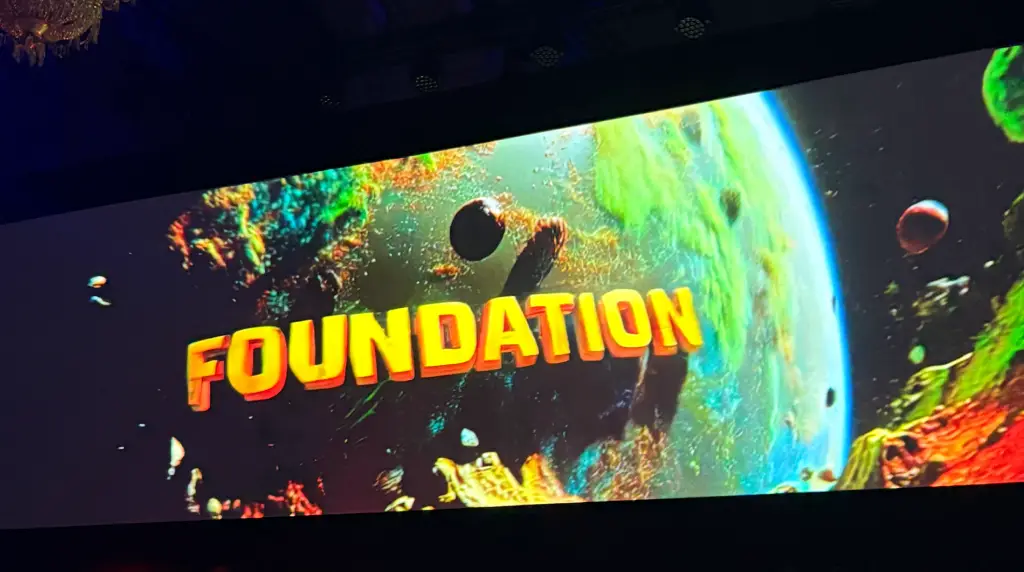Back in Vienna this year, the TEDAI 2025 conference brought together some of the brightest minds shaping the future of artificial intelligence. The event wasn’t simply a showcase of technological breakthroughs — it was a deep exploration into how AI is changing human life, society, and trust. From the foundations of reasoning models to the ethics of domestic robots and the reinvention of financial inclusion in Latin America, TEDAI Vienna delivered a powerful message: AI’s next leap forward must be as human as it is intelligent.
The Architecture of Intelligence — Lukasz Kaiser’s Vision
When Lukasz Kaiser, co-author of Attention Is All You Need and co-inventor of GPT-4, takes the stage, the room listens. His research is the foundation on which today’s AI models — including ChatGPT — are built. But at TEDAI Vienna, Kaiser didn’t just look back on how we got here; he offered a glimpse of where we are heading.
He described the evolution of large language models (LLMs) in three pivotal stages:
- RNNs — The Early Translators
The first recurrent neural networks could translate languages and process sequences of text without overfitting, but they were bound by the limits of the datasets and computational power of their time. RNNs lead to GRUs and LSTM – what we see in today’s Large Language Models - Reasoning Models — Beyond Data Dependence
The next generation required less data and began to reason, referencing external information and adapting dynamically. This shift marked the move from pattern recognition to genuine inference. - Models Doing Science — AI as a Researcher
The most transformative stage is now emerging: AI systems that generate and test hypotheses, accelerating scientific discovery itself. Kaiser calls these “models doing science” — algorithms that can iterate, simulate, and reason in the same way human researchers do, but at unprecedented speed.
This progression, he noted, represents not just bigger models, but smarter ones — systems capable of creativity and critical thinking. For organisations, that means AI will increasingly solve complex, interdisciplinary problems — from drug discovery to climate forecasting — faster than ever before.
Kaiser’s message was clear: AI is no longer about automating the simple; it’s about amplifying the profound.
Living with AI — Emily Kate Genatowski’s Human Experiment
Few talks bridged technology and humanity as vividly as that of Emily Kate Genatowski, a PhD candidate at the University of Vienna and a former lead at Google Arts & Culture. Her ongoing research involves an unusual housemate: a humanoid robot named Nova.
Through her experiment “living with a robot,” Genatowski is uncovering what it truly means to share human space with artificial beings. Her insights were often humorous, sometimes unsettling, but always deeply human.

Redefining Trust — Mercedes Bidart and the Economics of Inclusion
From Europe’s research labs to the streets of Bogotá, Mercedes Bidart, CEO and Co-founder of Quipu, offered one of the most impactful talks at TEDAI Vienna. Her mission is bold — to rebuild financial trust for the millions who are invisible.
In much of Latin America, daily commerce is largely based on personal reputation. You can buy a sandwich on credit because the vendor knows you, but that trust doesn’t translate into a formal credit score. For millions of micro-entrepreneurs, being “off the books” means exclusion from the banking system.
“Being poor is very expensive,” Bidart said. Without access to fair credit, small business owners pay extortionate interest rates to loan sharks, sometimes under threat of violence. Yet these micro-enterprises make up a third of Colombia’s GDP.
Quipu’s approach is transforming that reality using AI-driven data intelligence. Over a three-year project involving 26,000 entrepreneurs and 150,000 data samples, Bidart’s team achieved an 85% predictive accuracy for repayment trust — without relying on traditional credit data.
Here’s how they do it:
- Digital Behaviour: Analysing phone transactions, text messages, and bill payments.
- Visual Verification: Using video to evaluate products and business operations.
- Social Scoring: Applying computer vision to social media posts to infer consistency and reliability.
The outcome is a holistic, bias-aware dataset — with gender parity (50% women) — that gives financial institutions a new way to see potential, not risk. “We can prove that these vendors show up, deliver, and can be trusted,” Bidart said.
Her vision is not only technical; it’s moral. By redefining how we measure trust, Quipu is rebuilding financial dignity for millions who were previously invisible to the system.
Speakers Included Here
Lukasz Kaiser is a deep learning researcher at OpenAl and was previously part of Google Brain.
Emily Kate Genatowski is a PhD candidate in Digital Humanities at the University of Vienna, with degrees from Harvard and Columbia.
Mercedes Bidart is CEO & Co-founder of Quipu, a fintech enabling credit access for informal businesses in Latam.


